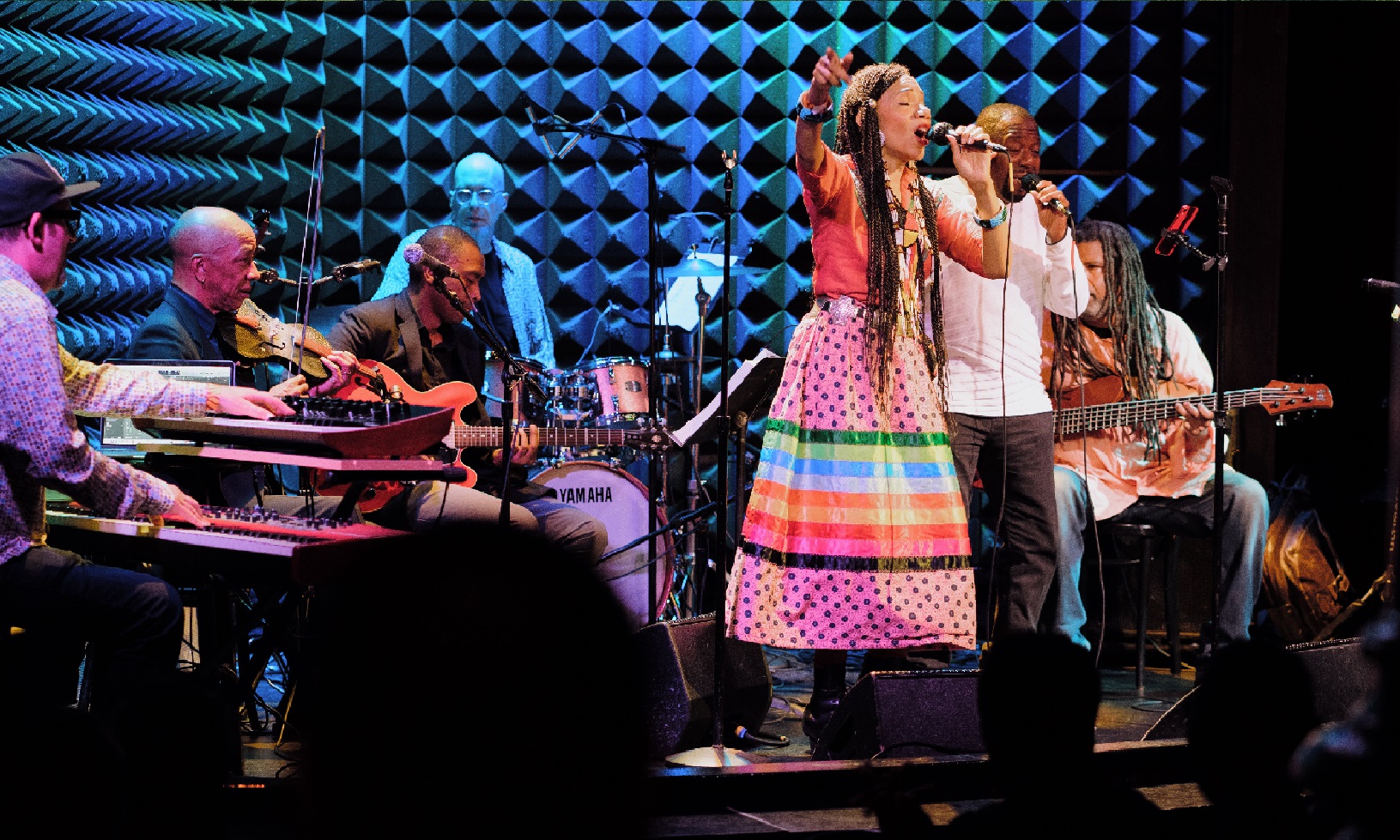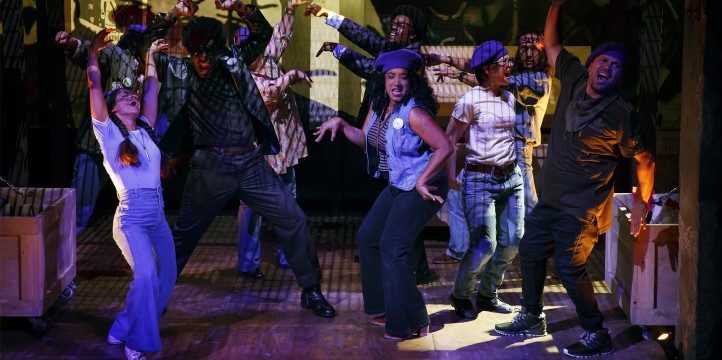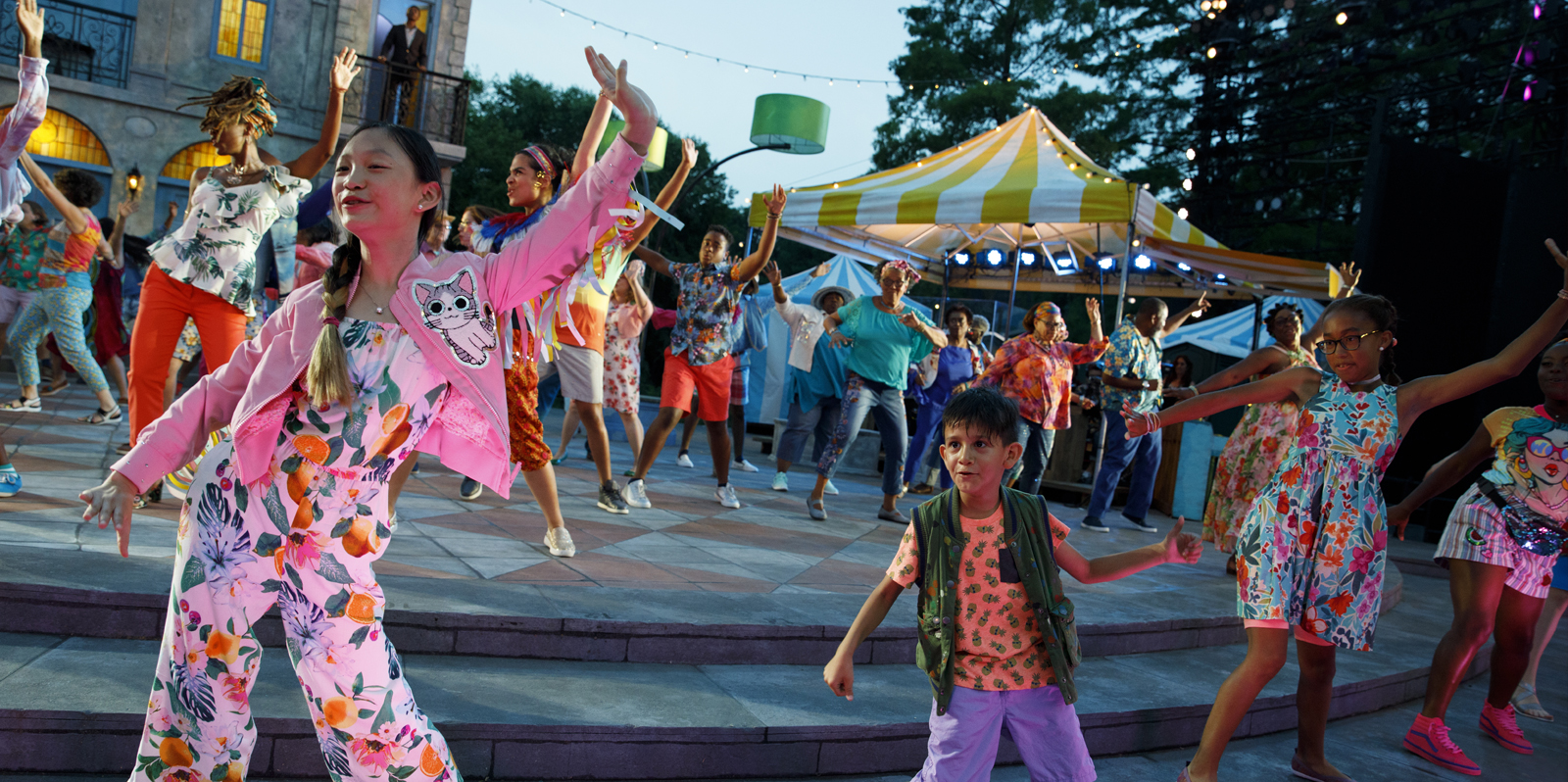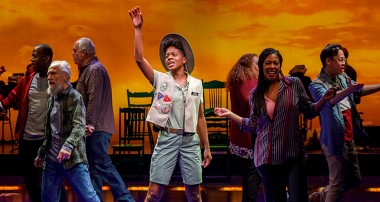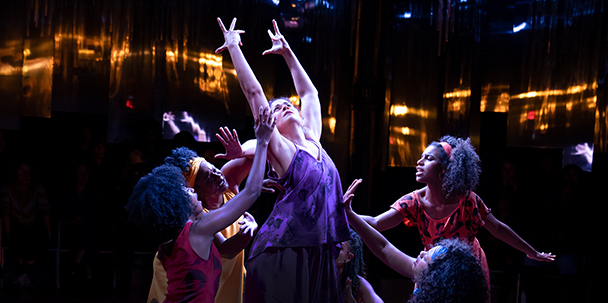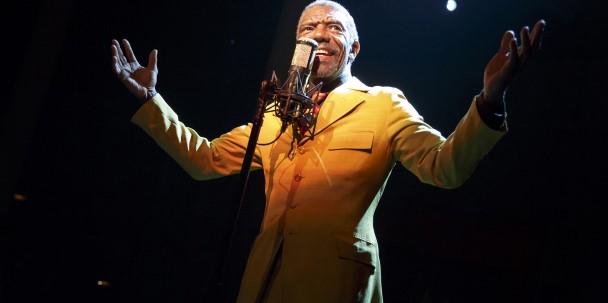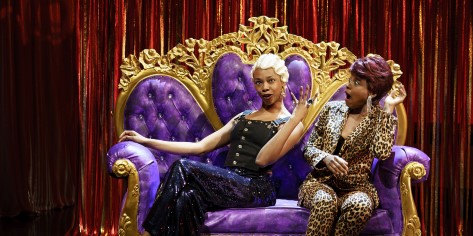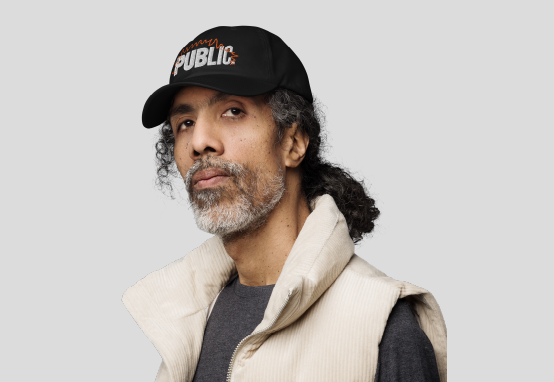In the world premiere musical Broadbend, Arkansas, a Black family grapples with decades of inequality, violence, and suppression in the South. This unique piece, spanning nearly half a century and three generations, asks us to contemplate the cycle of violence in this country and how we will find hope and create change against the backdrop of hate that plagues America. Broadbend, Arkansas, produced in association with The Public Theater, premiered at The Duke on 42nd Street in Fall 2019 and is now streaming online for free through August 16. In this interview, Company Dramaturg at The Public Jesse Cameron Alick speaks to Librettist Harrison David Rivers and Composer Ted Shen.
Jesse Cameron Alick: In your own words, what is Broadbend, Arkansas about?
Harrison David Rivers: The sins of the world of one era impacting the world of the next era. The things we pass down or the things that we aren’t able to pass down. A humor and a strength that is inherent in the family that is in this show, but I think also in the African-American people. A kind of resilience, a need to say, “Today I’m going to walk boldly into this day.” Some of our characters are wrestling with that: “How do I boldly walk into this day, today?”
Alick: What was the creation process? How did you two work together?
Ted Shen: The piece was written with a novel approach that Paulette Haupt created, Paulette having been the longtime head of the O’Neill Theater Center. She created a series of pieces called Inner Voices in which she commissioned a writer to write a monologue, and then after the monologue was written found a composer to set it to music, creating a musical theatre form called “musical monologue”. So the process that she set up was libretto first, music second. And that’s the process we used, because we are in fact presenting two back-to-back monologues.
Rivers: I don’t write lyrics, so the idea of writing book and lyrics intimidated me, and one of the reasons why I was excited about the project is that Ted told me I didn’t have to write lyrics, I just had to write a monologue, and that he would extract from what I had written and set it to music. I didn’t know what was going to be sung and what wasn’t going to be sung. Those were Ted’s decisions, and he’s got a very discerning ear. So I think it’s resulted in something quite beautiful.
Alick: Harrison, I know you’re not a musical theatre writer, but your plays always feel musical to me.
Rivers: I started in music. That was my first brush with the arts: I was an instrumentalist and a singer. I do feel like that musicality or that sense of rhythm is inside me. So it tends to impact how I write and what I write. And I do think that for this specific character in this specific piece it works really well. There’s a tumble all the way to a kind of revelation. So I feel like my style was well-suited to this particular character and story.
Shen: Harrison writes musically without intending to write for the purpose of being set to music. It was easy, as well as a joy, to set his words to song and create songs out of free prose. I felt I had more freedom, but my freedom was just to follow the path that he was forging with his kind of poetic, musical approach to writing.
Alick: The play looks at cycles of violence repeating each other over the course of thirty or forty years. What do you feel has changed in thirty years, and how do you feel about the word “hope”? Is hope lost?
Rivers: It’s a question that we’ve been asking in the rehearsal room. Danyel Fulton, who’s playing Ruby, is an asker of questions, an interrogator of what’s on the page. She’s really pushed us to give Ruby as much agency as possible. I wonder if something that has changed, or something that speaks to hope for me, is the fact that an actress can come in and say, “So, here’s the role on the page. How do we give her, in 2019, as much agency as possible in a hopeless situation?” That is exciting and hopeful to me—the artist’s approach. And maybe the fact that now we can pose the question and hopefully get to—maybe not a complete answer, but enough of an answer to get us up out of bed and out the door with a straight back and our chin up. Ready to take on whatever might be coming.
Alick: I teach at Fordham, and I’ve been lecturing to them about the importance of stories, because the stories that we tell, of course, become the lives that we live.
Shen: It’s become so easy and kind of common to say “the more things change, the more they stay the same”. But that’s just too much of a gloss. To me, hope has a lot to do with choice. If you look hard, and you see you actually have choices that you might not have had thirty years ago, you know that is a positive change. However despairing current trends may be, what we want Ruby to understand is: she actually does have choices, but she has to get back in the saddle and make something of what those choices can be. And in that sense, there’s reason to have hope, and to pass that sense of hope and choice to her son.
Alick: Anything else you want to add?
Rivers: I feel like there is a wealth of both lived and artistic experience that I am getting to soak in. I am learning a tremendous amount. That idea of legacy and what we pass on is happening in the workroom as well. It’s not just on the stage and it’s not just the characters, it’s the team. We’re an intergenerational team telling an intergenerational story.
Shen: This collaboration is something I’ve never experienced before, and I just think it’s very special because it’s not just being a team to craft a successful theatre piece and get the laughs here and one clear line there. I think we’re all searching together to find a lot of answers. But before we can do that, we have to identify the issues and questions, many of which I didn’t think about or wasn’t aware of in the earlier processes of developing the piece. It’s so much a function of having this team.
BROADBEND, ARKANSAS
Now streaming for free through August 16. Register with Transport Group to stream for 48 hours.
Official cast album available to stream and download.
Original Run: October 25 - November 23, 2019
Act I: Book and Lyrics by Ellen Fitzhugh, Music by Ted Shen
Act II: Book and Lyrics by Harrison David Rivers, Music and Additional Lyrics by Ted Shen
Directed by Jack Cummings III
A World Premiere Musical Produced by Transport Group
In Association with The Public Theater
Starring Justin Cunningham and Danyel Fulton
Our friends at BROADBEND, ARKANSAS ask that if you enjoy this musical, in lieu of a ticket purchase, please support The Black Theatre Network.
Photos by: Brian Gustaveson



